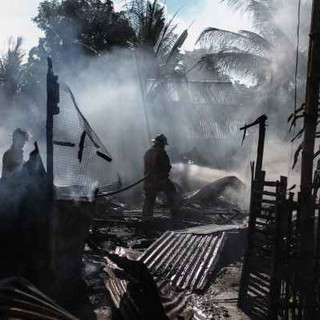Can Your Small Business Recover from a Disaster?
What if your town and your small business were hit by a disaster? Could you recover quickly or would you be in jeopardy of losing your business? According to the Federal Emergency Management Agency (FEMA) as much as 40% of small businesses don’t recover after a catastrophe. This is a sobering fact given that so many storms, including fire storms, are hitting the globe, often in rapid succession.
Further, certain parts of the US are more prone to specific types of disasters than others. For example, earthquakes and fire storms are greater possibilities in the west than in the east. But in the Southeast there is the threat of hurricanes bringing torrential downpours and damaging winds spawning widespread flooding as in Hurricane Matthew and most recently, Hurricane Florence. In the North, a tremendous snowstorm could bring business to a halt, even damage your building.
You need a plan to recover and survive. Taking action immediately is crucial, but action before the disaster could mean the difference between survival and folding. There are steps you can take before a disaster to protect your business. Be proactive and follow these suggestions:
1. One of the first things to do for your business is obtain the best insurance you can afford. Know your agent and your policy. Keep your policy in a safe, accessible place. If you are affected by a disaster, make a claim as soon as you can after the disaster has occurred.
2. In the event of a disaster, contact your employees as soon as you can so that you can be sure they and their families are safe. Human life and livelihood are most important.
3. Have money set aside for disaster and emergencies. Even if your business is not touched physically by the disaster, your customers may be affected and their spending may drop off, or even disappear, in the face of a disaster in your area.
4. If you have employees, it would be useful to have an occasional disaster drill. If there are any deficiencies in your preparedness plan they should show up in a drill. If the area you live in has an occasional town wide or statewide drill such as the tornado preparedness drill, participate. Preparation doesn’t have to cost a lot of money, but a small investment of time could mean your business survival.
5. Good recordkeeping is crucial to any business, but in a disaster it is very possible that you won’t have access to your files. Best practice is to keep your records and documents in the cloud.
By now most of us are well aware that disaster can take the form of fire, flood, hurricane and earthquakes, even terrorism. Don’t let being ill prepared contribute to the impact of the disaster. Preparation could mean the difference between recovery for your small business or your business becoming one more victim of the disaster.






















